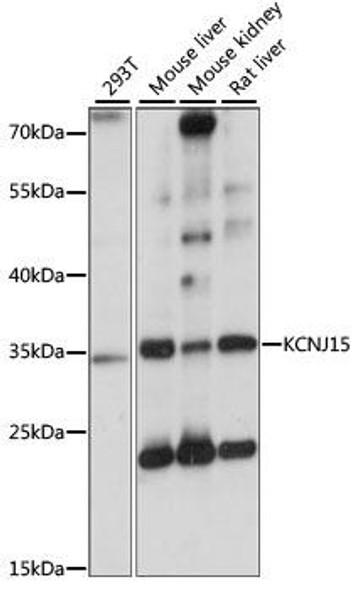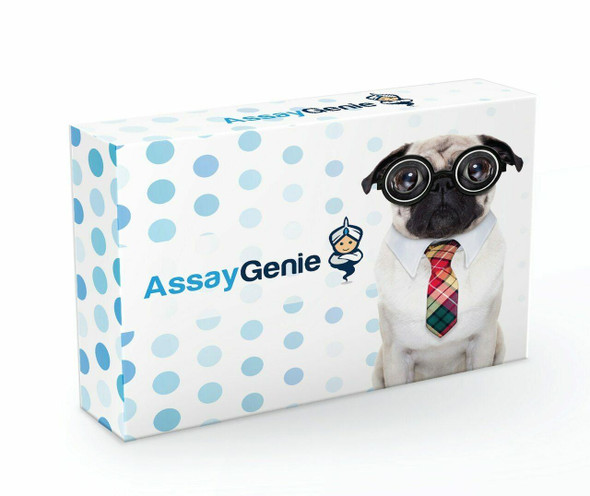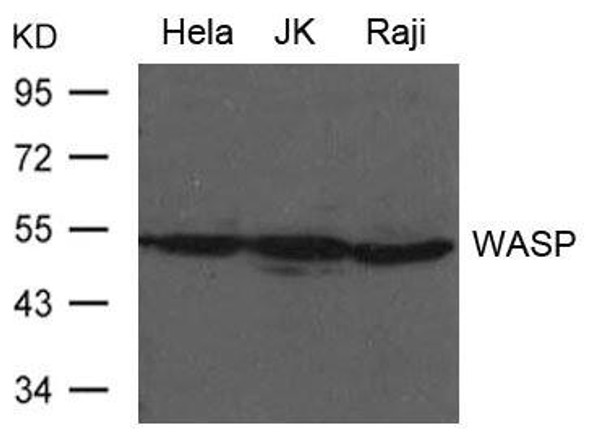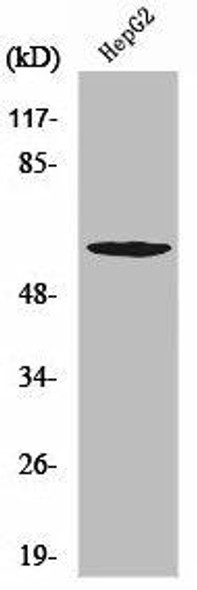KCNJ15 Antibody (PACO10061)
- SKU:
- PACO10061
- Product type:
- Antibody
- Reactivity:
- Human
- Mouse
- Rat
- Host Species:
- Rabbit
- Isotype:
- IgG
- Application:
- ELISA
- Application:
- WB
- Application:
- IHC
- Antibody type:
- Polyclonal
- Conjugation:
- Unconjugated
Frequently bought together:
Description
| Antibody Name: | KCNJ15 Antibody (PACO10061) |
| Antibody SKU: | PACO10061 |
| Size: | 50ul |
| Host Species: | Rabbit |
| Tested Applications: | ELISA, WB, IHC |
| Recommended Dilutions: | |
| Species Reactivity: | Human, Mouse, Rat |
| Immunogen: | Human KCNJ15 |
| Form: | Liquid |
| Storage Buffer: | PBS with 0.1% Sodium Azide, 50% Glycerol, pH 7.3. -20°C, Avoid freeze / thaw cycles. |
| Purification Method: | Antigen Affinity purified |
| Clonality: | Polyclonal |
| Isotype: | IgG |
| Conjugate: | Non-conjugated |
| Synonyms: | potassium inwardly-rectifying channel, subfamily J, member 15;KCNJ15;IRKK;KIR1.3;KIR4.2;MGC13584 ; |
| UniProt Protein Function: | KCNJ15: Inward rectifier potassium channels are characterized by a greater tendency to allow potassium to flow into the cell rather than out of it. Their voltage dependence is regulated by the concentration of extracellular potassium; as external potassium is raised, the voltage range of the channel opening shifts to more positive voltages. The inward rectification is mainly due to the blockage of outward current by internal magnesium. Belongs to the inward rectifier-type potassium channel (TC 1.A.2.1) family. KCNJ15 subfamily. |
| UniProt Protein Details: | Protein type:Membrane protein, integral; Membrane protein, multi-pass Chromosomal Location of Human Ortholog: 21q22.2 Cellular Component: integral to plasma membrane; plasma membrane Molecular Function:protein binding; inward rectifier potassium channel activity Biological Process: synaptic transmission; potassium ion import; potassium ion transport |
| NCBI Summary: | Potassium channels are present in most mammalian cells, where they participate in a wide range of physiologic responses. The protein encoded by this gene is an integral membrane protein and inward-rectifier type potassium channel. The encoded protein has a greater tendency to allow potassium to flow into a cell rather than out of a cell. Eight transcript variants encoding the same protein have been found for this gene. [provided by RefSeq, Feb 2013] |
| UniProt Code: | Q99712 |
| NCBI GenInfo Identifier: | 77416869 |
| NCBI Gene ID: | 3772 |
| NCBI Accession: | Q99712.2 |
| UniProt Secondary Accession: | Q99712,O00564, Q96L28, Q99446, D3DSH5, |
| UniProt Related Accession: | Q99712 |
| Molecular Weight: | 42,577 Da |
| NCBI Full Name: | ATP-sensitive inward rectifier potassium channel 15 |
| NCBI Synonym Full Names: | potassium inwardly-rectifying channel, subfamily J, member 15 |
| NCBI Official Symbol: | KCNJ15 |
| NCBI Official Synonym Symbols: | IRKK; KIR1.3; KIR4.2 |
| NCBI Protein Information: | ATP-sensitive inward rectifier potassium channel 15; inward rectifier K+ channel KIR4.2; inward rectifier K(+) channel Kir1.3; inward rectifier K(+) channel Kir4.2; potassium channel, inwardly rectifying subfamily J member 15 |
| UniProt Protein Name: | ATP-sensitive inward rectifier potassium channel 15 |
| UniProt Synonym Protein Names: | Inward rectifier K(+) channel Kir1.3; Inward rectifier K(+) channel Kir4.2; Potassium channel, inwardly rectifying subfamily J member 15 |
| Protein Family: | ATP-sensitive inward rectifier potassium channel |
| UniProt Gene Name: | KCNJ15 |
| UniProt Entry Name: | KCJ15_HUMAN |










